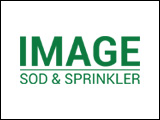The Canadian Pork Council reports about 65 percent of those who ship or receive hogs in Canada are now reporting the movements of those animals to the PigTrace Canada database.
Effective July 1, 2014, under changes to Canada’s Health of Animals Regulation, the reporting of movements of live swine in Canada became mandatory.
Jeff Clark, the manager of PigTrace Canada, an initiative of the Canadian Pork Council, says compliance is growing.
Initial registration came through the provincial pork organizations throughout Canada so any members that the provincial offices had, we automatically created PigTrace accounts for them.
All their premises information was put into the system.
That was about 8,000 premises or 7,500.
Since then though there’s been many non-registered producers out there that we just didn’t know about, a lot of outdoor backyard production, non-commercial and ball park, it’s around 600 to 700 new registrations on top of what we already had so right now we’re at about 8,500 registrations in the system.
About 65 percent of those are reporting across Canada, so that’s approaching 5,000 premises now.
Regionally it’s pretty consistent.
Some of the smaller provinces maybe have better compliance.
Quebec has had amazing compliance, upwards of 75 percent and mostly that’s because they still are central desk marketing.
They have a marketing regulation in Quebec.
Here in Manitoba our compliance is about 65 percent I believe.
There’s not a lot of regional difference.
Provinces like Newfoundland and the Yukon are coming on line so it’s not just our typical pork production regions that are on this program, it’s all across Canada.
Clark notes the Canadian Food Inspection Agency is responsible for enforcement and while inspectors have taken an educational approach so far, the federal government is expected to introduce a fine structure later in 2015.



